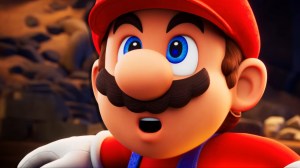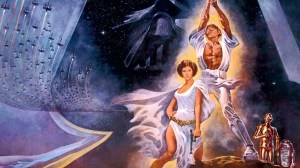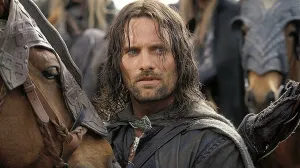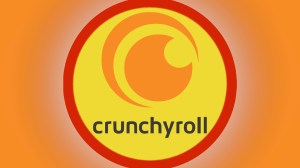Brian Michael Bendis is rewriting the future of DC Comics in Legion of Super-Heroes: Millennium, a two-part, monthly comic that will feature an immortal protagonist moving through various disparate DC futures, ComicBook.com has learned exclusively. She will come out the other end on the doorstep of the Legion of Super-Heroes, leading into a new, ongoing series from Bendis and artist Ryan Sook. Along the way, Bendis will work with a number of artists who will examine how characters like Kamandi, OMAC, and Booster Gold fit into the broader context of the Legion. Among the artists involved will be superstars Jim Lee, Jim Cheung, Nicola Scott, and Dustin Nguyen.
Videos by ComicBook.com
Per DC, Millennium focuses on a most unlikely tour guide to the 31st century — a familiar face to DC fans who finds herself suddenly immortal. As she learns to cope with her newfound immortality and the reason she was chosen for this quest, her 1,000-year odyssey will connect all of DC’s future timelines for the first time. Along the way she encounters a host of DC heroes from the future, as drawn by some of comics’ most popular artists. The first issue will introduce a near-future version of Supergirl, drawn by Jim Lee; Batman Beyond, drawn by Dustin Nguyen; Kamandi, drawn by Andrea Sorrentino; and Tommy Tomorrow, drawn by André Lima Araújo. Legion of Super-Heroes: Millennium #2 will bring Booster Gold, drawn by Nicola Scott; OMAC, drawn by Jim Cheung; A DC “off-world” chapter, drawn by Jeff Dekal; and finally the Legion of Super-Heroes, drawn by Sook. Bendis joined ComicBook.com to discuss Millennium, and to tee up what he has planned for the Legion of Super-Heroes going forward — and why he thinks he needs to be around for quite a while.

So you led into your Superman run with The Man of Steel, which is a storied title with a lot of fan affection behind it. Millennium, well…not so much.
This is speaking more to the actual shape of what it is. This is actually a unique experience of a character experiencing an entire millennium. The audience is going to experience it with them, and there really was no other word for it. I know the word has connotations, but I thought it’s more of a tip of a hat than it is anything else. Because, there really is no other word that describes what this is.
These characters have been off the board for a lot longer than you have been with DC. What has it been like to immerse yourself into this broad, deep, crazy mythology?
It is the most — and I say this with the curve that I know what real hard jobs are, but in the world of comics — this is the absolute hardest job on a craft level. I think you can just see. The Avengers have six people on the team and four friends, right? Legions has, at their lowest, somewhere in the twenties and at their highest, in the forties. They’re all from different planets, and they all have a couple of different aliases and a history and a power, and they all interact in unique and different ways.
It’s all based on a history that’s coming, based on a history that we have. It is the most unique, the most exciting, and the most demanding job in all of comics. I was talking to a fellow, past X-Men writer who literally said to me, “So, it’s literally like writing like the entire X-Men universe, but in one book.” And I’m like, “Yeah, it really is. It’s phenomenal.”
It’s an enormous task, and the most fun I’ve ever had. I’m literally vibrating when I’m writing it, it’s so exciting. Because there’s a feeling people get from Legion, and the people who have been missing it all this time. Legion gives you a very special, almost uniquely potent feeling of imagination and hope. It’s almost like the whole theme of DC Comics, but amplified by how it’s laid out.
The people who want it are desperate for it, and so our job is to give that feeling — but the modern version of it. It’s an enormous task that we’ve been working on literally since I walked in the door at DC.
How much of the development time was spent with kind of getting the tone? It seems like this is a property that gets reinvented every time they turn around, and so there are a lot of options, not all equally good.
It’s all like a lot of franchises, its high marks are so high that a lot of people look at Mike Grell and Keith Giffen’s work on Legion as being as good as superhero comics can ever be, right? That’s a very high bar to be reaching for. People still read “The Great Darkness Saga.” It’s everything you want comics to be. Right? It’s so imitated everywhere you look. One of the earliest of events events storie like we have today. So, to try to accomplish that, to make that our goal but from a modern setting. You go, okay, now we want to give people the feeling of a “Great Darkness Saga,” let’s say. Or, the feeling of the Mark Waid issues of Legion, but from the perspective of today. Building all of that, but starting from this standpoint of a modern comic reader, and that could only get us into brand new kinds of sci-fi, and that’s exciting.
That’s kind of where we are right now with our development is we have tried so hard not to indicate anybody we’ve specifically said, “No homage to Kirby, Moebius, or John Berkey,” because so many people do that right now, there’s so much of it, let’s make it our goal not to do that and see what we get. Because, that’s what Kirby, Moebius and John Berkey did. Ryan and I are right in the middle of building that language, and that’s pretty exciting. And, we’ll all see what it is together.
Every time there’s a big continuity shakeup, the Legion gets the brunt of it — but we almost never see how and why the changes happened. Here, it seems like you’re walking the audience through whatever changes you might make to the backstory. Is that fair?
I’m with you on that. That question you just asked was one of the first questions I asked. People who have read Legion before will be excited, or interested that we’re doing this, but for people who have never read Legion before, or have only heard about it (usually in very positive tones), it’s up to us to invite them to the 31st century. It’s a buy-in, right? You’re coming to a new part of the DC Universe, so we want to invite you.
I thought, I wonder if there’s a way — and this is what Legion and Millennium is — I wondered if there was a way to literally walk the audience from today, right to the Legion’s front door, giving them a tour of what happens to the DC Universe…some of which we know because we’ve seen these disparate futures from different creators over the years.
Why don’t we tie them all together and really walk it up to the Legion’s door, because the point of the Legion of Super-Heroes is how it reflects back on the era of the Age of Heroes, right? We can take a character from today and walk them through how the icons and the heroes thrive and survive and altered and changed and ended up on the Legion’s front door with a guide.
And this is what Millennium is: every chapter is by a different artist, some of the greatest artists working in comics today. Each I handpicked, or [the artists] handpicked, the future they wanted to do. And a character is walking literally from today to the Legion’s front door, connecting everything from Kirby’s Kamandi, to Dan [Jurgens]’s Booster Gold to Batman Beyond and Tommy Tomorrow. All of it, it gets threaded together in a very exciting timeline. If that seems like a load of work and research, absolutely. [Laughs]

At what point did you decide that, of all the people you can work with, Sook was the right fit for this book?
When you saw the first pages of Man of Steel, that’s about when I knew. I knew as soon as Ryan said he’d do something for me. Your head can’t help but go, “that would be the coolest Legion of Super-Heroes book I could see.” It was just saying, what would I buy? But, I didn’t know Ryan at all and also, it’s like the biggest project. It’s a huge project.
It literally took months just to design the characters, and he’s working on it every day. I reached out to him and sold this enormous insanity that you see in front of you. and lo and behold, it was exactly what he was looking for. He was looking for the biggest challenge, and he has taken it on immensely.
My favorite thing from this whole year that no one knows about, is that Ryan sends in all these designs — usually with a pamphlet of notes and character ideas — and he’s truly creating this with us. I get to share it with our other peers and they get to flip out and get impressed, it’s fantastic. Ryan is an artist’s artist; they love him, and this is the work of his life. I’m so honored to be part of it. So, yes, Ryan was a very early part of this.
Everything you have done so far at DC is bigger, bigger, bigger. What do you think comes next? What’s bigger than reinventing the future?
[Start Gallery Call-to-Action Key=7773]Well, Legion is the next thing. It is still actually actively happening and one of my Legion goals is, and this isn’t a criticism of other creators, but over the years, Legion doesn’t have the consistency that other books have had. To attempt what we’re attempting, and then keep it a consistent book for a while that really builds to something at the level of “The Great Darkness Saga” or other high-water marks of Legion, is a big goal for this and for us.
I think people buying in on this want the biggest thing in the world. That’s what they’re coming for. We’re really going to try.
A lot of that, as far as what you said about the ambitions that I’ve had at DC, is because when I first came here, I thought so much about other creators that have come here over the decades, and what they did, or what they tried to do. I have such an immense opportunity, I should really try on every level, everywhere I can. I’m so happy a year later, that people can really feel the effort because I’ve been given such a beautiful opportunity. To waste it would be almost a crime.
It’s exciting for Legion fans to hear about a commitment to consistency, since so often, DC puts a high profile creative team on Legion to launch it, and then after an arc or two, they’re gone and the book doesn’t have the same direction.
Yeah. As a fan, I would like a commitment from me to do what I just said. Beyond just launching it, which is exciting, having an excellent issue #12 is even more exciting, in a way. That’s my goal.
The Legion also feels a little bit like the New Gods: you have this incredibly rich mythology that only a small number of readers really understand. How do you thread that needle of taking one of the most passionate and detail-oriented fanbases in all of comics, and giving the Legion fans what they want while still “walking everybody else to the door?”
I thought about that exact question quite a lot, and this is my answer: I have had this opportunity a couple of times, where I like something a great deal that I know only a few other people like. I think my reasons, or our reasons — our cult’s reasons — for liking it are so legitimate, that it would just take a little nudge in the right direction to get other people onboard. Like Luke Cage or something like that, right?
I think along the same terms with Legion. Us passionate fans: oh, boy, how fun are they? My Twitter feed is fun all day with Legion. I think Legion fans love being teased more than they like seeing the book. But that kind of passion is infectious. You have some readers who, because let’s say Avengers: Endgame and all the movies, think they’ve seen it all and are really itching for a next-level experience. And there are people who go, “Oh, Legion actually is a next-level experience.” And then, we’re there for them. That’s what we’re offering for those who think they’ve seen it all: you haven’t, alright?
Or, those who want to see just another way to tell these stories. It’s using the our infectious feeling towards it and just sharing it with other people. I’ve had that experience before. It’s kind of my favorite thing. I had it just at DC, having people literally discover the Wonder Twins blind. They never heard of them, and are reading Mark Russell’s book, and are so happy, it’s the best feeling. I got to share that with you; I got to have a moment with you over a story, and it wasn’t even mine.
I know that you guys are keeping it under wraps for the time being, who our point of view character is going in through Millennium, but is this a character people are familiar with? Is this a deep cut, or a new character?
For those who are worried, it’s a character that can leave the DC Universe and walk a thousand years, and not mess up your favorite comics. Right away, I just want to let the Reddit people know. Immediately, they think it’s their favorite character and I’ll destroy their book. Wait ’til you find out, I will say it’s a character that I’m writing right now. It’s someone who I get to tee up to the walk. Almost like it was planned nicely…!
Also the character, and the reason we picked this character, is that it’s a character whose morality shifts based on this scenario they are in. As they go from chapter to chapter, that is also a question: how are they going to react to what’s going on around them?
Listen, we’re saying a lot of words here, but I got, I can sell it with so much easier. Andrea Sorrentino drawing Kamandi. That’s it, hashtag, done. Jimmy Cheung drawing OMAC.

A lot of these characters are characters you don’t see much, but it’s that story where “this is your favorite creator’s favorite thing.”
Yes! Also, what I got really happy about when it was all put together, is that your favorite creator’s favorite thing is now so sturdily a building block towards something in the future of DC Comics. When I ran it by Dan Jurgens — the Booster Gold stuff, right? — he was stoked about it because it was like, “oh, now, it’s not only just a cool story, it’s part of this big thread that takes us somewhere.”
It’s funny, seeing Booster becoming part of a building block to the Legion, since he has sparred with them a few times about his stolen Legion ring!
Speaking of which, the Booster Gold chapter is drawn by Nicola Scott, if you need another reason to buy this. I love Nicola’s work so much, but she’s one of my closest friend’s closest collaborators. She works with Greg Rucka so closely that I never thought I’d get a chance to do something, and we did this thing together. It’s just, on a personal level, one of my great moments as a comics creator that I got to do this with Nicola.
I won’t lie: at either San Diego or New York last year, I spoke with her briefly and we ended up talking about how much she wanted to draw Booster.
That happened a few times on this project. I don’t want to speak for the other creators, but I had accidentally said, “Hey, I think you’d be perfect for (blank).” And they go, “That’s my favorite thing, I can’t believe you’re asking!” It happened quite a few times on this project. I get excited, because I know for the few pages they’re drawing, it’s going to be among the best pages of their whole careers, because they think this might be the only chance they get to do it. Nicola’s Booster pages reek with the feeling of, “Oh, my God, I finally got to draw Booster Gold.”

The way you are framing this — the idea of someone walking through the DC history — almost feels a little like a “man versus self” story from 8th grade English class. Is there an over-arching threat to Millennium?
Our Legion is going to be a little different than past Legions. I know that sometimes in the past, the Legion have gotten together because things are so peaceful, they can’t stand it. Our Legion is coming together out of what they think is dire necessity. Things are starting to crumble, and they’re crumbling fast, and it really feels like it’s time for a new Age of Heroes for the first time in a millennium. That there’s a genuine sense of threat to all things.
It’s funny because there are 34 lead characters. There are a lot of perspectives that the story is going to be handled from. So, so many perspectives that almost no story will be left unturned. Not every character will see things the same way. It’s like every great team: some will be on the same page, some will not. It’s going to be a time of great chaos and struggle in the galaxy, and it’s up to them to get to work and figure it out as they’re going; they’re young.
You have been working with a lot of younger heroes not just at DC, but throughout your career going back to Miles and Peter on Ultimate Spider-Man. Does working on THE teen team feel a little like the culmination of that?
They are! And if you start really building the world around them, and the universe that they’re part of…they’re pining for an Age of Heroes. They want to make it themselves, right? You’re coming into a universe of ideas about self and all the kinds of things that “self” means as far as anywhere on the spectrum. You can think of about religion, or sexuality, or anything that makes a person individual, and apply all these intergalactic ideas to it…and it is an explosion of imagination and hopefully a real, intimate reflection of the world we live in.
It’s basically all I think about. Really, it’s about making sure each one of those characters has their personality with a shiny, smooth wall of all of the amazing imagination that Ryan brings to every single panel.
Listen, what I’m so excited about this Legion/Millennium project in particular, is that the Legion fans who have been waiting…we wanted to give them something special, for the wait, all right? I know it wasn’t my fault they were waiting, but, I’m like, “yeah! We were all waiting together, let’s make this a real something, a unique storytelling experience that you deserve.” So this lead-up is such a celebration of DC Comics’s art and history, and at the same time its future, that I was like, “Yeah, this feels like a Legion-worthy launch.”
—
Legion of Super-Heroes: Millennium will appear in the next issue of Previews and can be ordered at your local comic shop starting next week.








